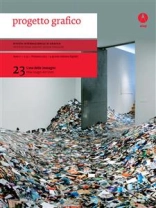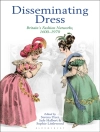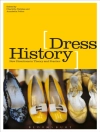L’uso delle immaginia cura di Riccardo Falcinelli e Claude Marzotto Il tema di lavoro parte dal presupposto che sia innanzitutto l’uso a determinare il significato di un’immagine. La stessa immagine assume significati diversi se pubblicata all’interno di un articolo giornalistico o su una scatola di packaging. L’impiego di immagini e immaginari preesistenti in nuovi contesti comunicativi può, volontariamente o meno, modificare, rinnovare, neutralizzare, sovvertire i significati precedentemente attribuiti alle stesse immagini. Se è ormai un luogo comune dire che siamo circondati dalle immagini a maggior ragione c’è da chiedersi qual è il loro potere. L’ipertrofia iconografica ha reso esplicite le nostre responsabilità: più che un ipotetico significato delle immagini conta come decidiamo di usarle e queste scelte comportano conseguenze sul piano formale e più spesso etico. Si parla molto di fotografia in questo numero: le foto, con la loro apparente contiguità con il reale, appaiono come oggetti innocenti e ovvi (ne abbiamo migliaia nei nostri computer e telefonini) e, più dell’illustrazione o della pittura, sembrano oggi le immagini per eccellenza. Ma nulla è più insidioso dell’innocenza.How Images are usedby Riccardo Falcinelli and Claude Marzotto This working theme is based on the assumption that the meaning of an image is mainly determined by its use. The same image takes on different meanings whether it is published in a newspaper article or on a packaging item. The use of existing images and imagery in new communication contexts may have the consequence, intended or otherwise, of changing, renewing, neutralizing, subverting meanings previously assigned to those images. Since it’s commonplace to say we’re surrounded by images, nowadays there’s all the more reason to wonder what their real power might be. This overgrowth of images has made our responsabilities clear: what counts more than any hypothetical meaning they might have is how we decide to use them. Such choices entail consequences on both formal and, more often, ethical levels. A lot of this issue deals with photography: photos, with their apparent contiguity to the real world, seem like innocent, obvious objects (we have thousands on our computers and mobile phones) and, more than illustration or painting, they seem like today’s default type of image. But there is nothing more insidious than innocence.
Monica Aldi & Santo Alligo
Progetto Grafico 23 – Primavera 2013 [PDF ebook]
Rivista Internazionale di Grafica – International Graphic Design Magazine
Progetto Grafico 23 – Primavera 2013 [PDF ebook]
Rivista Internazionale di Grafica – International Graphic Design Magazine
Köp den här e-boken och få 1 till GRATIS!
Språk Italienska ● Formatera PDF ● ISBN 9788890583964 ● Filstorlek 46.1 MB ● Utgivare AIAP Edizioni ● Publicerad 2013 ● Nedladdningsbara 24 månader ● Valuta EUR ● ID 6875245 ● Kopieringsskydd utan












